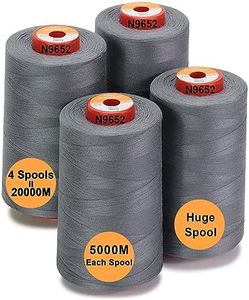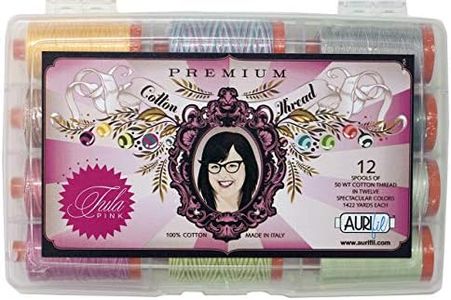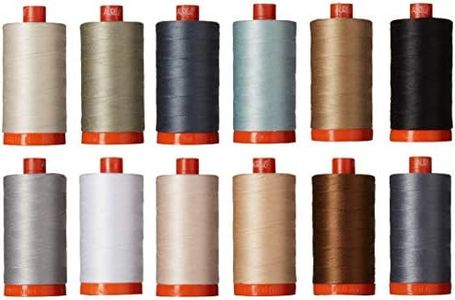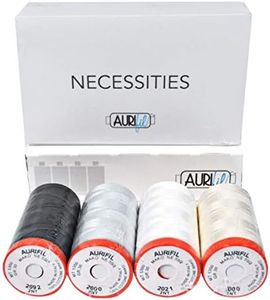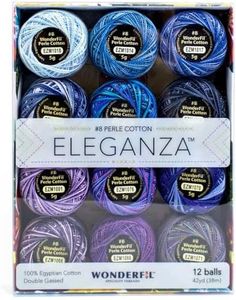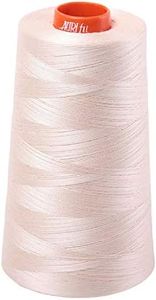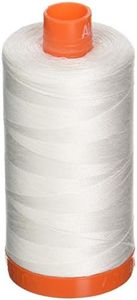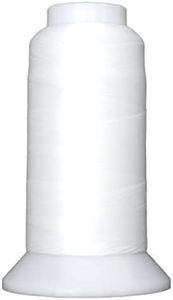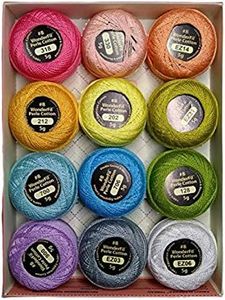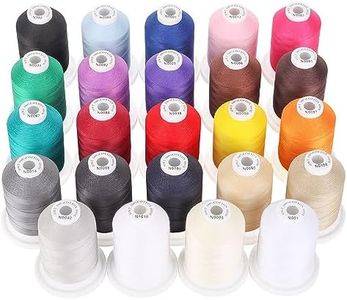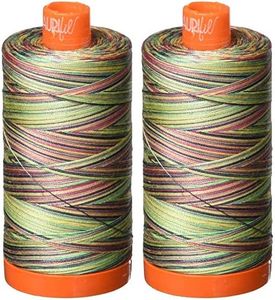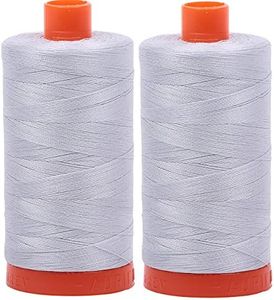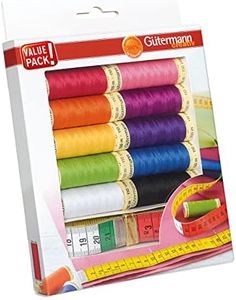We Use CookiesWe use cookies to enhance the security, performance,
functionality and for analytical and promotional activities. By continuing to browse this site you
are agreeing to our privacy policy
10 Best Quilting Threads
From leading brands and best sellers available on the web.By clicking on a link to a third party's website, log data is shared with that third party.
Buying Guide for the Best Quilting Threads
Choosing the best quilting thread can make a big difference in your quilting projects, affecting both the appearance and durability of the finished product. It's important to consider the thread's type, weight, fiber content, and finish based on what you intend to make, your quilting technique, and your sewing machine compatibility. Understanding the main thread specifications and what they mean for your project will help you select something that works smoothly, holds up well, and gives your quilt the look you want.Thread Fiber ContentThread fiber content refers to what the thread is made from, such as cotton, polyester, silk, or a blend. Different fibers have their own unique qualities. Cotton is traditional for quilting because it is soft, non-stretchy, and blends well with cotton fabrics, giving a classic matte look. Polyester threads are stronger, slightly stretchy, and less likely to break, making them suitable for both hand and machine quilting. Silk threads are very fine and luxurious, mainly used for special work or delicate projects. When choosing fiber content, consider compatibility with your quilt fabric and the desired durability and finish of your quilt.
Thread Weight (Thickness)Thread weight is a measure of how thick or thin a thread is, usually noted as a number on the packaging. Lower numbers mean thicker threads (like 30wt), while higher numbers mean finer threads (like 50wt or 60wt). Thicker threads are good for bold, visible quilting lines and decorative effects, while finer threads are less noticeable and blend into the fabric for subtle quilting. Moderate weights (like 40wt or 50wt) are versatile and common for both piecing and quilting. Pick the weight based on the visual impact you want and how much strength your quilt needs, as well as what your sewing machine handles best.
Thread FinishThread finish describes any special coating or treatment on the thread, such as mercerized, glazed, or matte finishes. Mercerized threads are treated to increase their luster and strength, making the thread smoother and shinier, which helps it run more easily through fabric. Glazed threads have an added coating for durability and less lint, ideal for hand quilting. Matte or uncoated threads are less shiny and provide a softer look. If you want a glossy effect and smoother quilting, choose mercerized; for hand quilting and reduced tangling, glazed is helpful; for a natural look, uncoated threads work well.
Thread StrengthThread strength is important for the longevity of your quilt, especially if it will get frequent use or washing. Strength increases with certain fibers like polyester and with thicker thread weights. If your quilt will be used a lot or is for a child or bedspread, you may want a stronger, more durable thread. For wall hangings or decorative pieces, maximum strength may be less critical, allowing for finer, decorative threads.
Color and Dye QualityThread color matters for the visual impact of your quilting lines: matching thread blends in, while contrasting thread stands out. It's also essential to consider dye quality—look for colorfast threads that don't bleed when washed, to avoid ruining a quilt’s look. If you're unsure, test a sample in water before using. Choose color and dye safety based on the quilt’s appearance goals and how much washing it will undergo.
Lint ProductionSome threads produce more lint, which can gum up sewing machines and make cleanup harder. Cotton, especially lower quality, can be lintier, while high-quality cottons, polyesters, and specially treated threads shed less. If you're using a sewing machine for lots of quilting, low-lint threads will keep the machine running smoother and reduce maintenance. Consider this if you do a lot of quilting or want to cut down on cleanup time.
